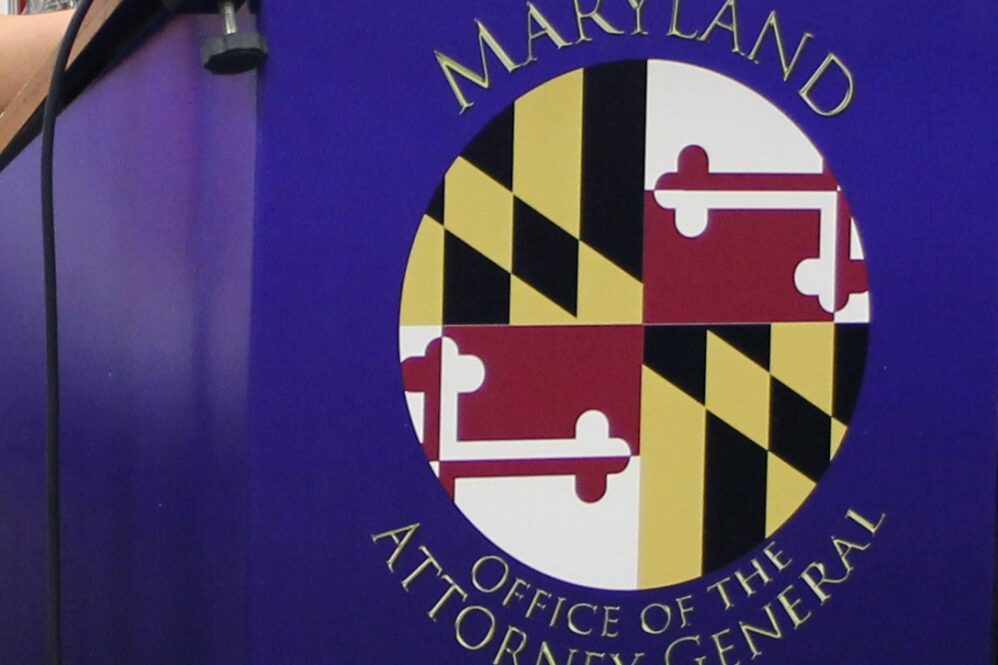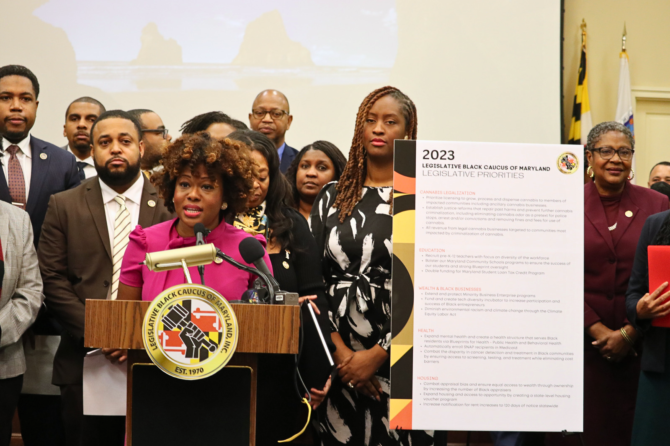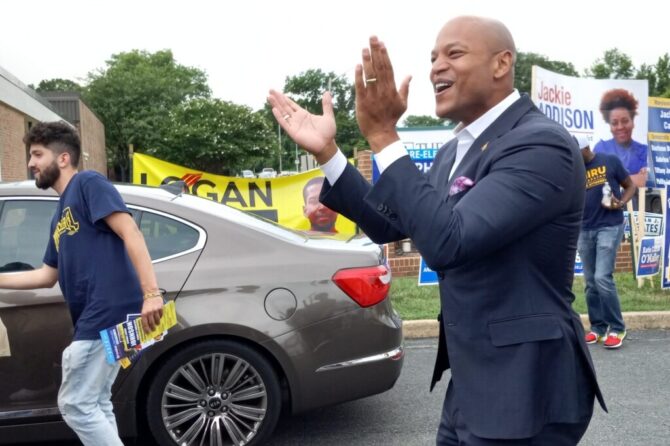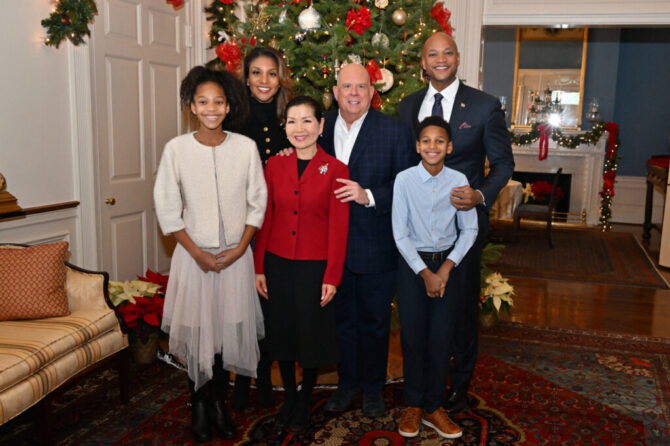MARYLAND MATTERS: With a Maryland hate crimes task force funded by a federal grant set to expire next year, legislation to make it a permanent group goes into effect Thursday.
The task force, now called the Commission on Hate Crime Response and Prevention, will continue to be managed by the state attorney general’s office.
About $114,400 from the U.S. Department of Justice will cover a one-year contract next fiscal year for the office to hire an assistant attorney general to manage the commission. The state will start to fund the position with an annual salary by fiscal year 2025 that will increase to $136,000.
The task force, comprised of state agencies, nonprofit organizations and community leaders conducted forums, advocated for legislation and created a hate-crime tip sheet.
The attorney general’s office and Maryland Commission on Civil Rights hosted a hate bias reporting forum May 11 at Frostburg State University that featured Erek Barron, the U.S. attorney for Maryland. The civil rights commission is a member of the task force that will join the new commission.
“This not your traditional standing up of a commission where you’re pulling this group together to start all new projects,” said Zenita Wickham Hurley, chief of the Office of Equity, Policy and Engagement in the attorney general’s office. “We’ll certainly have some new initiatives that the membership will decide to execute, but we have a body of work that many of these members have already been [and will] just continue to work on…”
One important legal point Wickham Hurley highlighted: the attorney general’s office serves as an additional resource to combat hate crimes. The cases are mainly prosecuted by local state’s attorneys.
The legislation — House Bill 1066 — signed into law by Gov. Wes Moore (D) last month, requires that a commission with nearly two-dozen members be convened to “develop strategies to prevent and respond to hate crime activity and evaluate state laws and policies relating to hate crimes.”
The commission will provide annual reports to the General Assembly and state Department of Education with recommendations to address hate crimes. The first reports will be due by Dec. 1, 2024.
Del. Joe Vogel (D-Montgomery), who served as the lead sponsor of the legislation, said it remains personal for him as a gay, Jewish man who moved to America from Uruguay with his parents at age 3.
Last year in his jurisdiction, antisemitic graffiti that included swastikas were drawn along the Bethesda Trolley Trail. Vogel said he lives less than 10 minutes away from that trail.
Earlier this year, Montgomery County school leaders put out a statement to condemn “all acts of antisemitism” after swastikas were drawn on desks at three schools.
“It was so heartbreaking being in Annapolis during the legislative session and seeing the constant updates in the news about hate,” Vogel said in an interview Tuesday. “I think that this commission brings together a whole group of people with perspectives on this issue that are going to collaborate to make sure that there is less hate in Maryland so that people feel less afraid to live their lives and be able to live their authentic identities without fear of hate and violence.”
The task force came about thanks to a three-year, $833,334 grant from the DOJs Bureau of Justice Assistance in 2021. Besides a full-time assistant attorney general, the money also helped the state conduct regional summits such as the one at Frostburg State, create the task force and help train law enforcement and prosecutors on hate crimes.
The attorney general’s website helped to create a hate-crime resource guide and residents can call to report hate crimes to hotline at 1-866-481-8361; those tips can be referred to local law enforcement authorities.
Members of the task force advocated for state legislation such as one approved three years ago to require law enforcement agencies to receive training on hate crimes.
“Education is the best way to eradicate any type of hate,” said Sarah Mersky Miicke, deputy director of the Baltimore Jewish Council, who served on the task force. “When you draw a swastika, what does that mean? What is the history of [drawing] a noose? What does that mean to a community? We can only go forward if we’re united in our efforts to take away the hate in our state.”
Hate rising
A fiscal analysis of this year’s legislation included a 2021 hate bias report compiled by the state police and the Maryland Coordination and Analysis Center (MCAC) shows the state had 388 hate bias incidents reported.
The agencies reported 347 victims of hate bias incidents, of which 96 were verified.
The state police define an incident where an investigation leads to a conclusion that “the offenders’ actions were motivated in whole or in part by their bias against a person’s R/E/A (race/ethnicity/ancestry), religion, sexual orientation, disability, gender, gender identify, or homelessness.”
The top four hate bias incidents in the state two years ago were:
- Anti-Black – 43.8%
- Anti-Jewish – 11.9%
- Anti-gay (male) – 9.7%
- Anti-Asian – 8.2%
The report shows Black Marylanders were nearly four times more likely to be victims of a hate crime compared to white people. Asian Marylanders ranked second and were nearly more than twice as likely to be victims of a hate crime compared to whites.
The Anti-Defamation League released a report in March that showed nearly 3,700 antisemitic incidents (assault, harassment and vandalism) nationwide occurred last year, the highest number recorded since the organization began tracking them 1979.
Maryland ranked 10th in the nation with 109 incidents, according to the Anti-Defamation League.
Although the Women’s Law Center has already worked as an ally with various organizations to eradicate hate crimes, it became a formal commission member when the legislature approved the law this year.
“Gender-based violence is generally not prosecuted as a hate crime even though there’s so much gender-based violence out in the world,” said Michelle Siri, executive director of the center. “We know that there are hate crimes happening, but they are still underreported. We want to make sure that we get as much information as we can…and that we are addressing hate crimes and using this law that exists for a reason.”
Organizations and community leaders not part of the previous task force or commission can still join, or at least participate in future events.
Wickham Hurley said a public meeting will take place later this year.
“We’ll try to get it together, but whenever we have it, it will be a public meeting,” she said. “We hope that everyone who is interested in this work will join us.”











